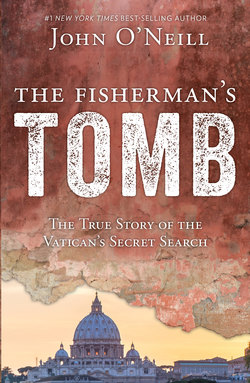Читать книгу The Fisherman's Tomb - John O'Neill - Страница 16
На сайте Литреса книга снята с продажи.
ОглавлениеChapter Six
Pius’s Gamble
The history of human institutions is a record of ephemeral lives, often with violent ends. The Golden Age of Athens, which gave birth to our greatest sculptures, as well as Socrates, Plato, and Aristotle, ended in the bloodbath of Syracuse and the Peloponnesian Wars in less than one hundred years. The long reign of Rome and the most long-lasting of Chinese and Egyptian Dynasties never reached or barely survived one thousand years. In the entire history of man, only two human institutions approach continuous existence and succession for more than two thousand years: the Japanese Imperial Succession and the papacy.
To approximately 1.2 billion human beings today, the pope is both supreme in all matters relating to the Church and infallible when, as pope, he promulgates teaching on matters involving faith and morals. Why is Rome the “headquarters” for Catholicism? On first impression, it seems an unlikely choice. Its first and most significant contact with Christianity was the criminal condemnation and crucifixion of Christ by a Roman procurator. Rome has, at best, slight biblical connections — a letter from Saint Paul to the small Roman church, an account of Paul’s beheading there by Nero, and allusions to Rome as an evil Babylon. Moreover, in Christianity’s early years, Rome butchered Christians without mercy.
Ephesus, Antioch, or especially Jerusalem would seem to have a far better historical claim to be the capital of Christianity. Except for Peter. Fundamental to the legitimacy of the pope is the belief that Peter was made head of the Church by Christ, who gave him the keys to the kingdom of heaven: “And so I say to you, you are Peter, and upon this rock I will build my church, and the gates of the netherworld shall not prevail against it. I will give you the keys to the kingdom of heaven. Whatever you bind on earth shall be bound in heaven, and whatever you loose on earth shall be loosed in heaven” (Mt 16:18–19).
